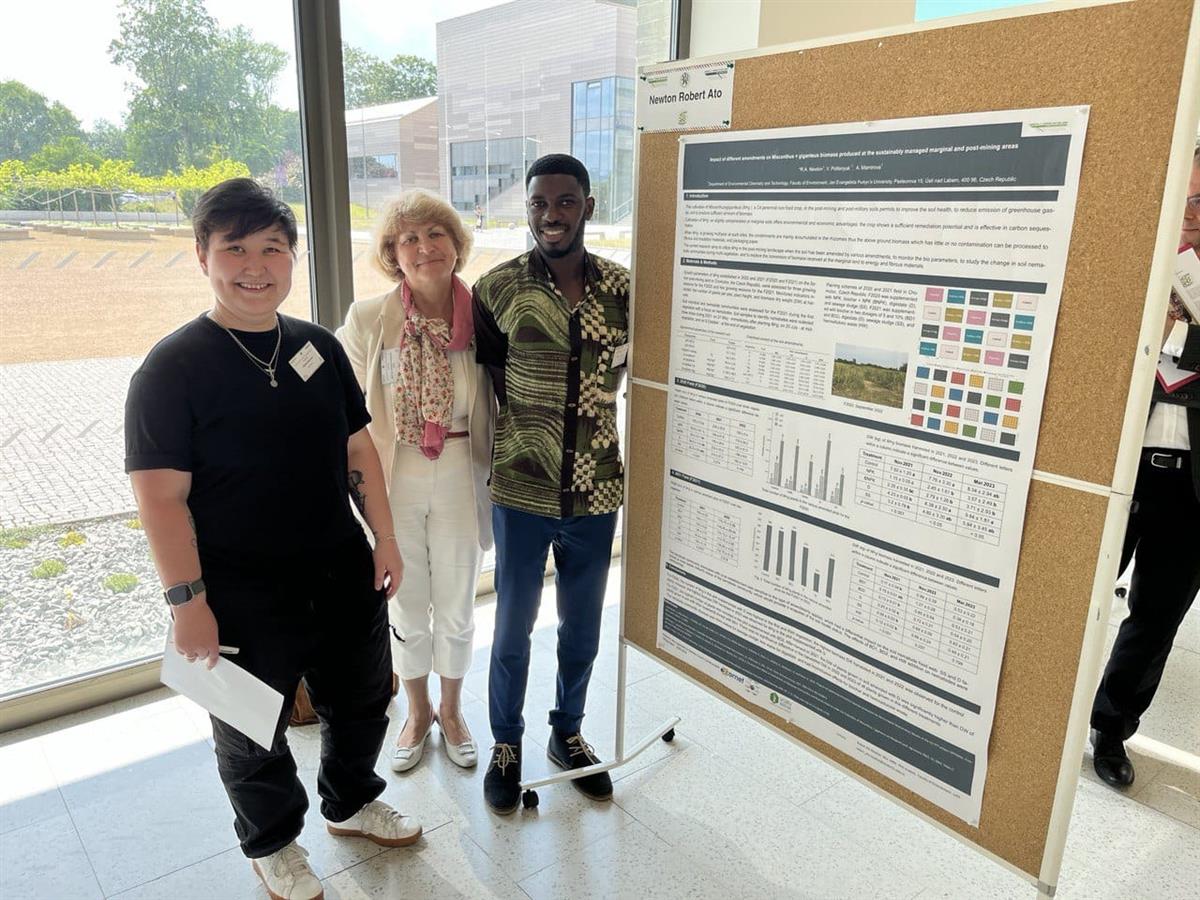Al-Farabi KazNU, as part of the implementation of the 13th goal of the UN SDG (Combating climate change), became a connecting university in an international project funded by NATO NATO MYP G6094 2023 - 2026. on the topic “Mitigation of climate change through Advanced Phytotechnology for military lan
Views: 355

The main goal of this project is to environmentally regenerate former military sites while also mitigating climate change by implementing advanced M×g phytotechnology over a multiyear period on complex contaminated military lands in Ukraine (Nemishayeve, Borodyanka rajon, Kyiv region and Dolyna, Ivano-Frankivsk) with the physicochemical conversion of biomass waste while ensuring by-product valorization.
Project objectives for Al-Farabi Kazakh National University:
Tasks will be carried out at the Department of Biotechnology under the guidance of the head of the Biotechnology department A.S. Kistaubayeva and Zhas Galym PhD Aigerim Mamirova.
- Check rhizosphere interactions and influencing factors that mediate phytotechnologies.
- Demonstrate the greenhouse gas mitigation effect of using advanced phytotechnology on mixed contaminated military lands supplemented with by-products.
Moreover, the common goal of all partners is to strengthen education in the field of climate change and the circular economy. Communicate information about advanced phytotechnology to innovative users and share knowledge among NATO countries and partners.
The use of biomass as an alternative source of energy is a significant contribution to the mitigation of climate change. Beneficial conversion of biomass requires research into the thermochemical processes, including gasification and pyrolysis. However, these processes generate by-product residues (ash, biochar, and bio-oil); effective utilization of byproducts is important for ensuring the sustainability of the process.
The intensification of using biochar as carbon storage is another perspective direction in climate change mitigation. When applied to soils it results in long-term carbon sequestration from stable C in the biochar and amending soil. Finally, the production of C4 crops contributes to the mitigation of climate change, and among them, Miscanthus × giganteus is the most promising as it reaches true CO2 neutrality and functions as a CO2 sink. However, research into GHG mitigation during this plant’s multiyear production is very limited. The crop shows good phytoremediation potential, nevertheless, its successful utilization with the mixture of organic and non-organic contaminated soil has been studied only sparingly. The next steps need to involve field-scale experimentation.
Linkage Institutions:
KAES - The Kansas Agricultural Experiment Station, Kansas State University (KSU), United States – Prof. Lawrence Davis
I2E3 - Innovations Institute in Ecomaterials, Ecoproducts and Ecoenergies, Université du Québec à Trois-Rivières (UQTR), Canada – Prof. Barbara Zeeb
KazNU – Department of Biotechnology, Faculty of Biology and Biotechnology, Al-Farabi Kazakh National University, Kazakhstan – Assoc. Prof. Aida Kistaubayeva
EndUsers:
- Ternopil Military Regional Administration, Ukraine - Mgr. Igor Piatkivskyi6,
- ENRESS, s.r.o., the Czech Republic – Mgr. Jaroslav Patek,
- NGO Sustainable Development and Ecological Education Centre “Dovkillya”, Ukraine – MSc. Felix-Roberto Lanier-Alvares,
- AGMEKO LT, s.r.o., the Czech Republic – Ing. Karel Prokes,
- Nemishayeve Vocational College, Ukraine – PhD Volodymyr Aljokhin,,
- State Enterprise “Centre for certification and expertise of seeds and planting materials, Vinitza branch, Ukraine – Switlana Yurkevich.








